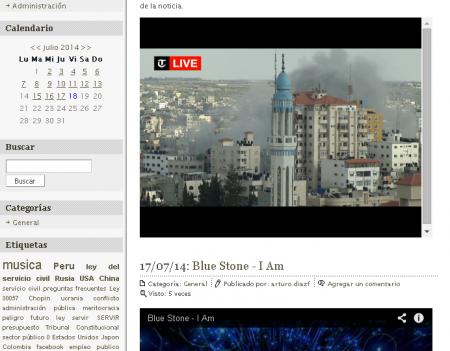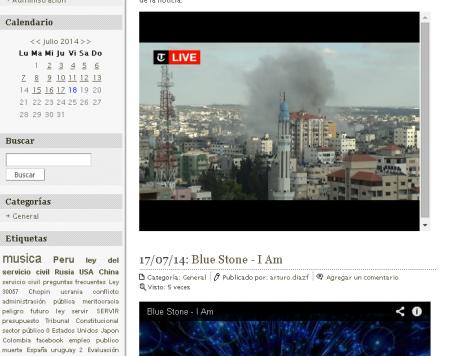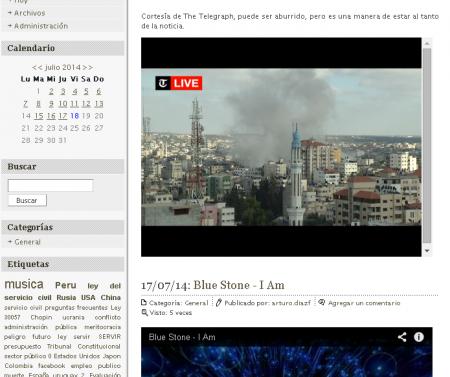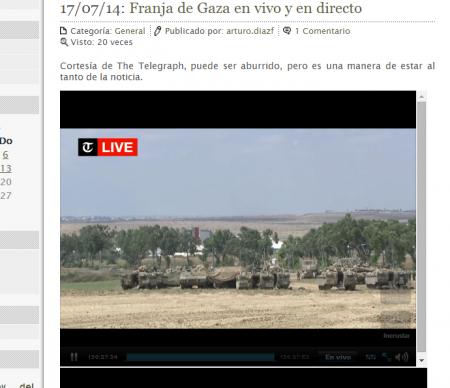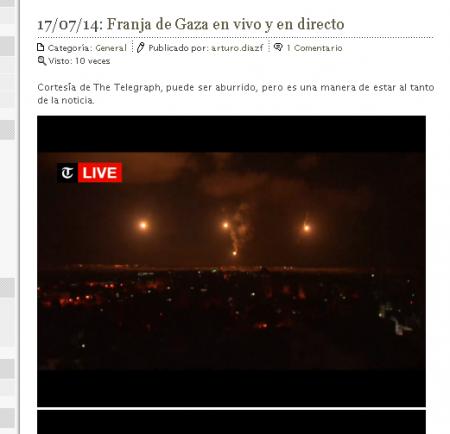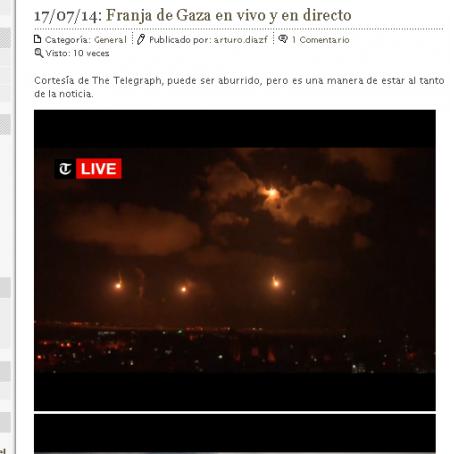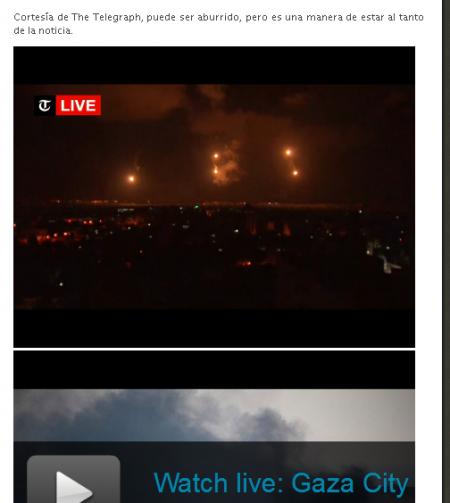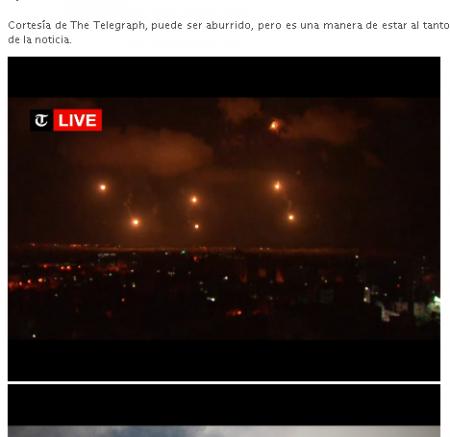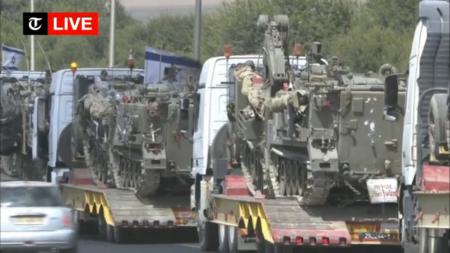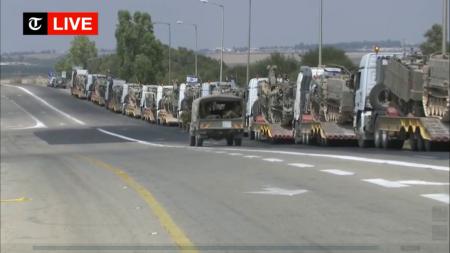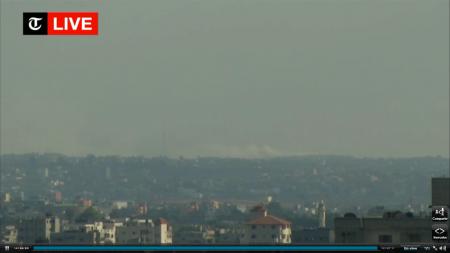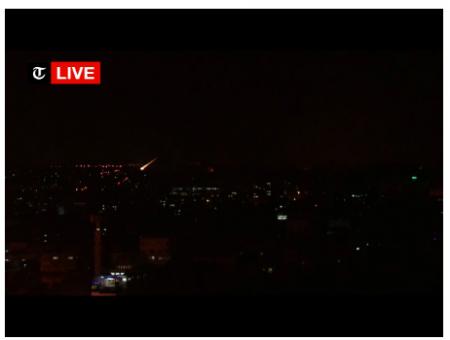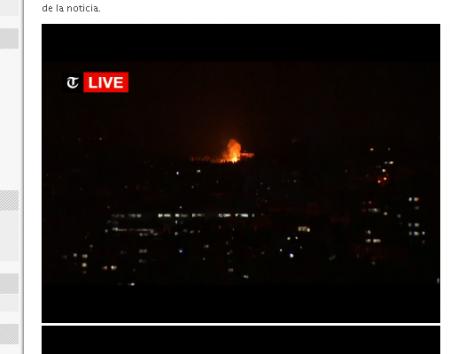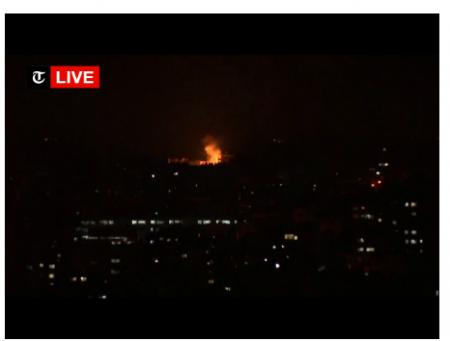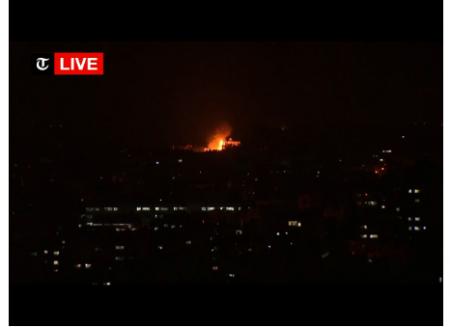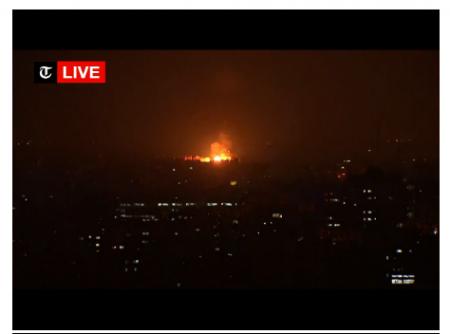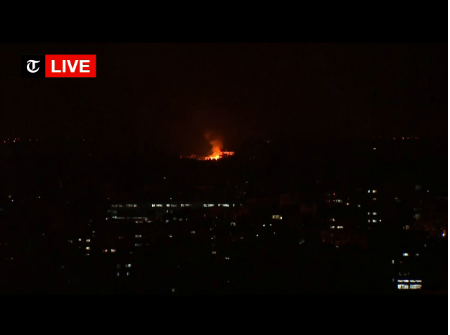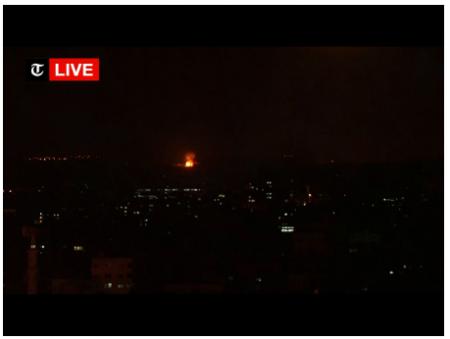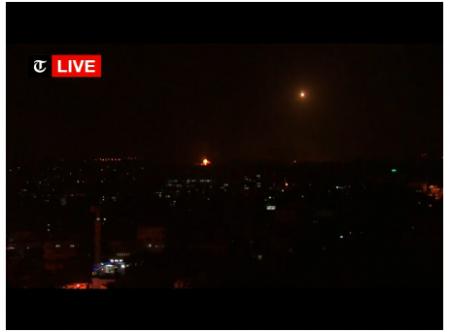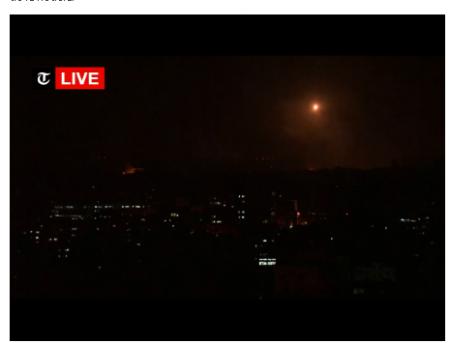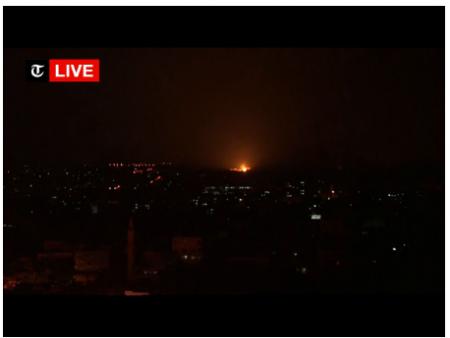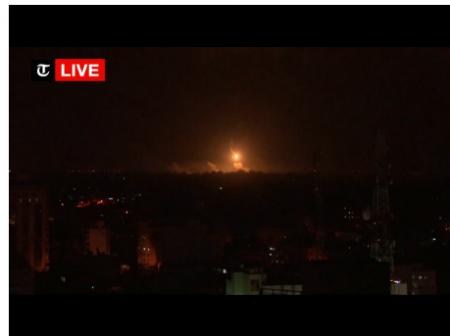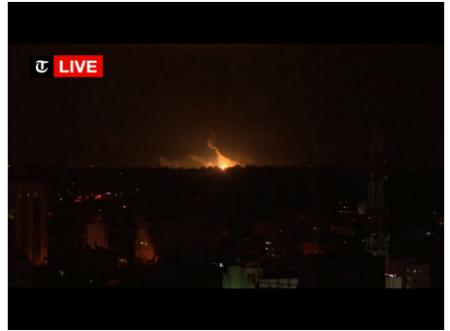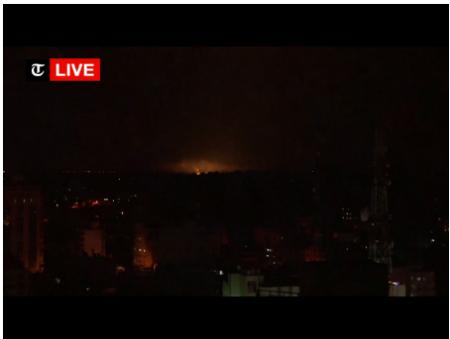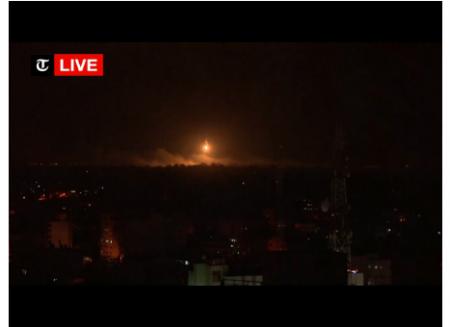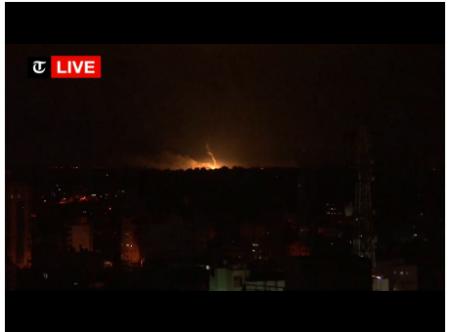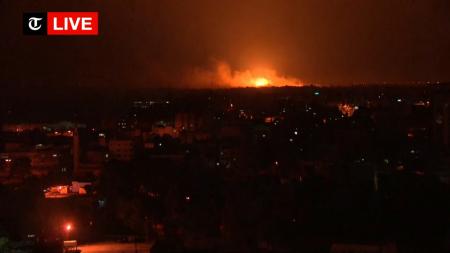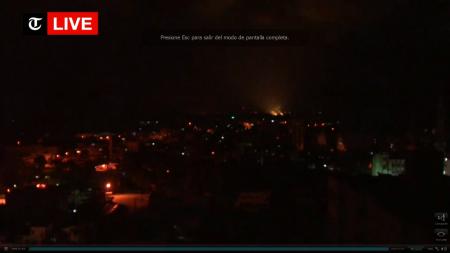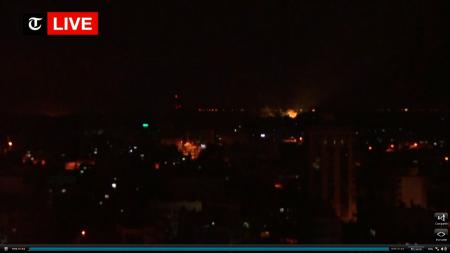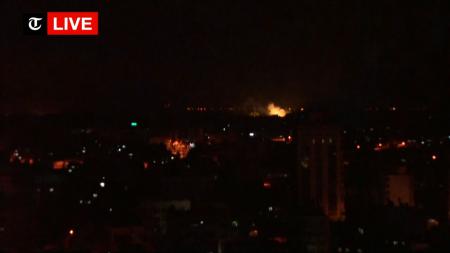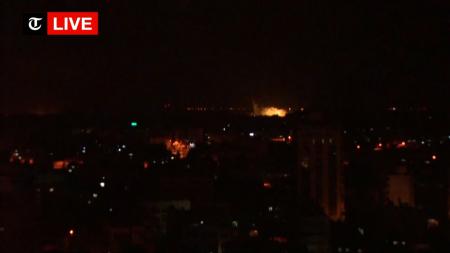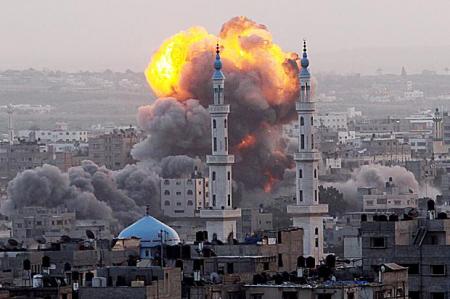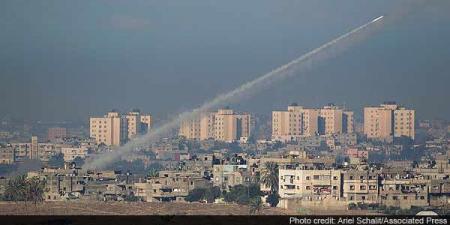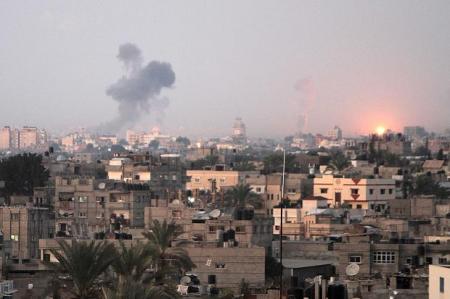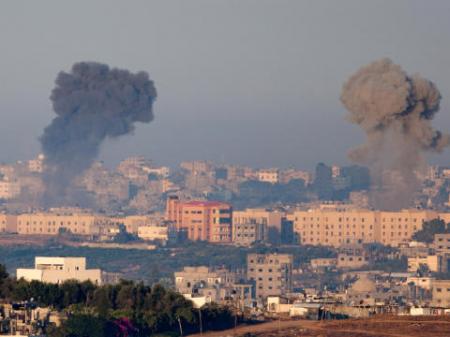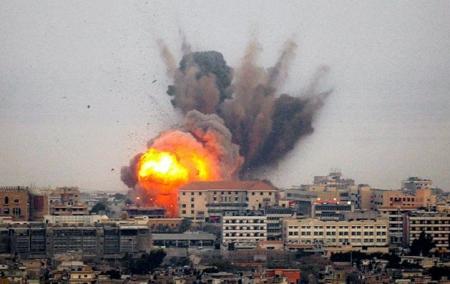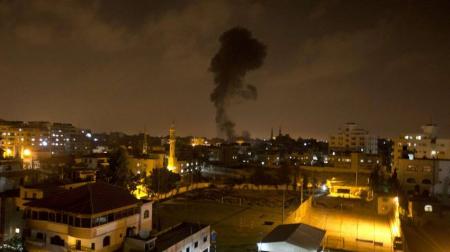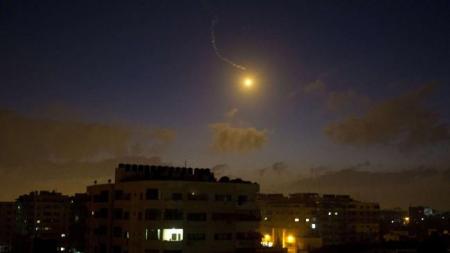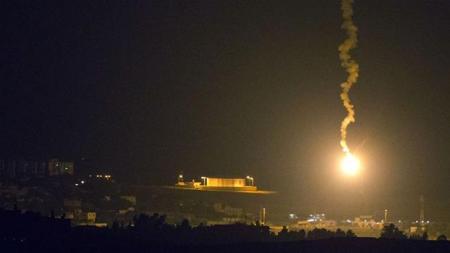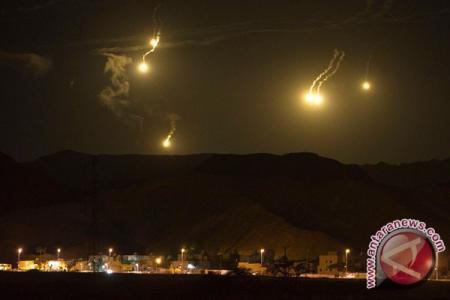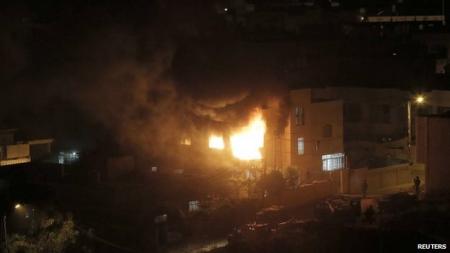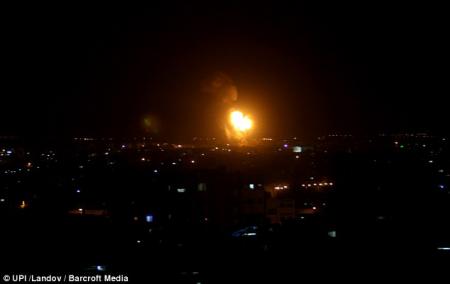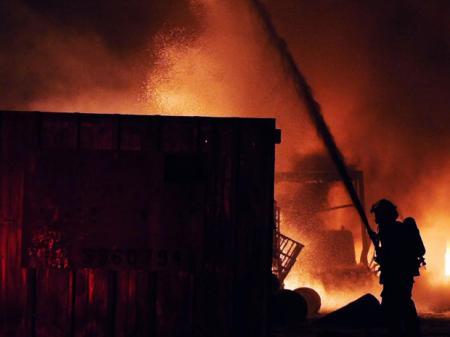Fascism Grips Israel
Zeev Sternhell is an Israeli historian, political scientist and outspoken critic of emerging Israeli fascism.
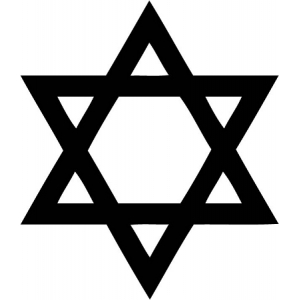
Signs reached a peak during Operation Protective Edge, he says. Democracy granting equality to everyone is nonexistent.
Sternhell deplores Israel’s settlement project. He supports Palestinian self-determination. He believes establishing a Palestinian state is essential.
What passes for Israeli democracy “reached a new nadir in the current war,” he stresses. Fascist “indicators…definitely exist here.”
He’s greatly concerned about “absolute conformism” among Israeli intellectuals. “They just followed the herd,” he says.
“By intellectuals I mean professors and journalists. The intellectual bankruptcy of the mass media in this war is total.”
“It’s not easy to go against the herd. You can easily be trampled. But the role of the intellectual and the journalist is not to applaud the government.”
“Democracy crumbles when the intellectuals, the educated classes, toe the line of the thugs or look at them with a smile.”
“People here say, ‘(i)t’s not so terrible. It’s nothing like fascism. We have free elections and parties and a parliament.’ ”
“Yet, we reached a crisis in this war, in which, without anyone asking them to do so, all kinds of university bodies are suddenly demanding that the entire academic community roll back its criticism.”
Bar-Ilan University’s law school dean threatened sanctions against a colleague. He did so for expressing sorrow over lost lives on both sides.
He called grieving for enemy losses a treasonous subversive act. According to Sternhell:
“We are arriving at a situation of purely formal democracy, which keeps sinking to ever lower levels.”
In Israel, “one sees the gradual erosion of enlightenment values.”
Consider Netanyahu’s “demand that (Palestinians) recognize Israel as the Jewish state.”
Doing so forces them “to acknowledge that they are historically inferior…The Arabs are citizens, but it’s not their country.”
“(A) distinction is made between nationhood and citizenship. Anyone can be a citizen, but we are the masters.”
The potential for annulling citizenship always exists. Arabs have no power to demand rights everyone deserves.
Democracy isn’t about voting every few years, says Sternhell. It’s tested daily “in terms of human rights.”
Everything else is secondary because “dictatorial regimes” can be established through the ballot box.
Democracy in occupied Palestine never existed. “Palestinians have no human rights.”
“You rule them by force, and after three (Jewish) boys are murdered, you can” collectively punish an entire population.
It’s always been this way, “and it corrupts,” says Sternhell. “Democracies don’t collapse suddenly. They encounter a serious crisis.”
“We could find ourselves in (one) in which the whole shebang (goes) up in smoke.”
A Knesset majority can legislate “segregation between Jews and non-Jews, impos(e) censorship, intimidat(e) dissidents, (as well as) the media and universities…”
“(I)t’s happening now, but it could reach a boiling point. The water is already very hot…It’s on the brink of boiling over.”
Sternhall calls Operation Protective Edge “a war of complete choice…” There’s no justification for blaming an entire population for killing three Jews.
Israel must change its relationship with Palestinians and with Arabs “as a whole.”
“The first thing is to stop deepening the Jewish presence in the territories.” Then support a two-state solution, lift Gaza’s siege, “let the population breathe,” and treat Palestinians “as human beings on an equal footing with us.”
Sternhall calls settlements “a cancer. If Israel can’t muster sufficient strength, political power and mental fortitude to remove some of the settlements, that will signal that the Israeli story is finished…”
Israel is the last remaining colonial country. It can’t continue this way much longer.
If not for the myth of unique Jewish suffering and fear of being called anti-Semitic, “Europe would have long (ago) boycotted the settlements.”
European business and industry are already beginning to do it.
Sternhall calls Naftali Bennett, Uri Ariel, Avigdor Lieberman and other Israeli right-wing extremists “truly dangerous people.”
They deplore democracy and human rights. They deeply hate Arabs. They don’t tolerate coexistence.
Asked if he’s afraid to criticize Israel in today’s charged atmosphere, Sternhell replied:
“If I need to be afraid to (speak freely), and to say it publicly to people’s faces, then our story here is over.”
Israel was never a democracy. For sure it’s not one now.
Its “story” reflects decades of institutionalized racism, apartheid worse than South Africa’s, militarized occupation, control over virtually all aspects of Palestinian lives, ruthless repression, contempt for rule of law principles, and belligerence in lieu of peace and stability.
Operation Protective Edge is the latest example. Netanyahu vows to continue mass slaughter and destruction until his goals are reached.
Perhaps he means exterminating an entire population one war at a time and by other means.
Operation Protective Edge has been ongoing for 49 days. The death and injury toll is horrific.
Palestinian casualties mount daily. The vast majority are non-combatant men, women and children.
Israel willfully targets them. Its aggression has nothing to do with Hamas rockets.
It has everything to do with preventing Palestinian self-determination, continuing its settlement project, stealing Palestinian land and resources, scuttling Fatah/Hamas unity, maintaining occupation harshness, and prioritizing belligerence over peace and security.
It’s unclear what happens next. Ceasefires come and go. They don’t hold. Israel obstructed Cairo talks.
It did so by making outrageous demands. It offered little or nothing in return.
Its agreements aren’t worth the paper they’re written on. Violations occur straightaway. Peace is fantasy. Conflict persists.
Here we go again. On August 25, Israeli and Palestinian news organizations said Egyptian mediators proposed a new ceasefire.
It includes opening border crossings, letting in construction materials and other aid, extending Gazan fishing from three to six miles and later 12. Tough issues will be discussed a month from now.
Both sides were contacted. According to the Israeli news web portal Wallal!, Israel is ready to accept an open-ended ceasefire. A PA official responded positively.
Hamas wants any agreement to end Israel’s eight year blockade unconditionally. Israel wants Gaza demilitarized.
It wants Gazans left defenseless. It wants the right to wage future aggressive wars for any reason or none at all unchallenged.
Another ceasefire is no more likely to succeed than previous ones. Israel doesn’t negotiate in good faith.
Gazans are tired of being treated like subhumans. They know Israel can’t be trusted. It doesn’t negotiate in good faith.
It takes a giant leap of faith to believe this time may be different. It never was before. It won’t be now.
Business as usual continues. It’s official Israeli policy. Nothing suggests positive change.
Not when Netanyahu lies saying “Hamas is ISIS and ISIS is Hamas.”
“They simply work in the same way. They are branches of the same poisonous tree.”
Not when other Israeli hardliners want Hamas entirely destroyed. Not when former Israeli US ambassador Moshe Arens wants the same thing.
“You have to defeat (Hamas) and disarm” it, he says. A ceasefire won’t work.
Not when Israel bears full responsibility for breaking them. Not when it prioritizes conflict over peace and stability.
Not when it spurns rule of law principles. Not when it maintains militarized occupation.
Not when it holds 1.7 million Gazans hostage under suffocating siege. Not when it attacks them for any reason or none at all.
Not when it terrorizes Palestinian West Bank and East Jerusalem communities multiple times daily.
Not when it denies all Palestinians fundamental rights everyone deserves. Not when it spurns positive change.
Not when Washington backs and encourages its killing machine. Not when Western leaders support its genocide.
Not while Palestinians are isolated on their own. Not while their liberating struggle remains unfulfilled.
Not when on Monday, Israel murdered seven more Palestinians, wounded 92 others, and destroyed 15 residential houses, a shopping center and a mosque.
Not when creeping fascism threatens Jews and non-Jews alike. So does the scourge of Zionism.
It made Israel a killing machine. Palestinians bear the brunt of its barbarism.
Nothing suggests positive change. It bears repeating. Business as usual continues.
——————————-
Stephen Lendman lives in Chicago. He can be reached at lendmanstephen@sbcglobal.net.
His new book as editor and contributor is titled “Flashpoint in Ukraine: US Drive for Hegemony Risks WW III.”
http://www.claritypress.com/LendmanIII.html
Visit his blog site at sjlendman.blogspot.com.
Listen to cutting-edge discussions with distinguished guests on the Progressive Radio News Hour on the Progressive Radio Network.
It airs three times weekly: live on Sundays at 1PM Central time plus two prerecorded archived programs.
http://www.progressiveradionetwork.com/the-progressive-news-hour

